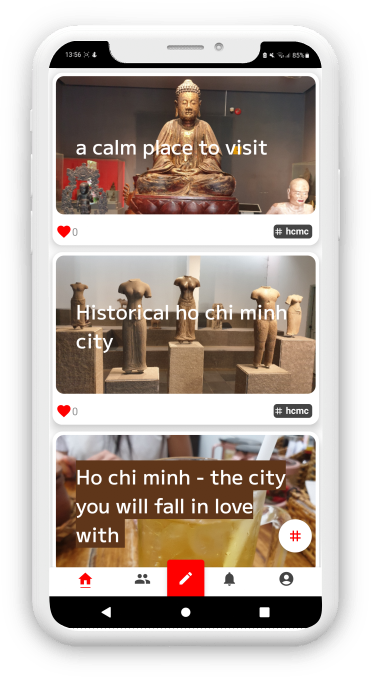 4
4
The Emergence of Self-Awareness�
From the moment we take our first breath, the journey of self-discovery begins. As infants, we are acutely attuned to the world around us, absorbing every sight, sound, and sensation with a sense of wonder and curiosity. It is during these early years that the foundations of our identity start to take shape, laying the groundwork for the unique individuals we will become.
One of the earliest and most significant milestones in this process is the development of self-recognition. Researchers have found that babies as young as 2 to 3 years old can recognize themselves in a mirror, a cognitive feat that marks the beginning of self-awareness. When a child sees their own reflection, they'll often reach out to touch their nose or face, indicating that they understand the image they see is a representation of themselves. This ability to differentiate between the self and the external world is a crucial step in the formation of a cohesive sense of identity.
As we grow older, this self-awareness continues to evolve, shaping our personality, our values, and our understanding of our place in the world. The way we interact with our environment, the relationships we form, and the experiences we have all contribute to the ongoing process of identity development. It is a dynamic and complex journey, one that is deeply influenced by both internal and external factors.
The Role of Childhood Experiences�
The formative years of childhood play a pivotal role in the shaping of our identity. From the moment we take our first steps, we embark on a journey of exploration, learning, and self-discovery. The way we interact with our surroundings, the relationships we cultivate, and the experiences we have all contribute to the development of our unique sense of self.
As infants, we are innately driven to explore and understand the world around us. Through play, we engage with our environment, testing the boundaries of our abilities and discovering new ways to interact with the people and objects that surround us. This process of active exploration and experimentation is crucial for the development of our cognitive, social, and emotional skills, all of which contribute to the formation of our identity.
The stimuli we encounter during these early years can have a profound impact on our development. Children who are provided with a nurturing and enriching environment, one that encourages exploration, creativity, and self-expression, are more likely to develop a strong sense of self-confidence and autonomy. Conversely, children who experience adversity, neglect, or a lack of stimulation may struggle to develop a cohesive sense of identity, potentially leading to difficulties in later life.
The Influence of Social Interactions�
As we grow older, our social interactions become increasingly important in shaping our identity. The relationships we form with family, friends, and peers play a crucial role in the way we perceive ourselves and the world around us.
From a young age, we learn to navigate the complexities of social dynamics, observing and mimicking the behaviors and attitudes of those around us. The way we are treated by others, the feedback we receive, and the roles we are assigned all contribute to the development of our self-image and the way we see ourselves in relation to others.
For example, a child who is consistently praised and encouraged by their parents may develop a strong sense of self-worth and confidence, while a child who is frequently criticized or belittled may struggle with feelings of inadequacy and low self-esteem. Similarly, the influence of peer groups can be significant, as we often seek validation and a sense of belonging from our social circles.
As we move through adolescence and into adulthood, these social interactions become even more complex, as we navigate the changing dynamics of relationships and the expectations of society. The way we navigate these social landscapes can have a profound impact on the way we perceive ourselves and the way we present ourselves to the world.
The Role of Culture and Environment�
Our identity is also deeply shaped by the cultural and environmental contexts in which we grow and develop. The values, beliefs, and traditions of the communities we belong to can have a significant influence on the way we see ourselves and the way we interact with the world around us.
For example, the way we are raised, the language we speak, and the customs we observe can all contribute to the formation of our cultural identity. This can be particularly evident in the experiences of individuals from minority or marginalized communities, who may face unique challenges in navigating the dominant cultural narratives and finding a sense of belonging.
Similarly, the physical environment in which we live can also play a role in shaping our identity. The geography, climate, and resources of a particular region can influence the way we interact with our surroundings, the activities we engage in, and the opportunities we have access to. This can be especially true for individuals who grow up in rural or remote areas, where the isolation and unique characteristics of the environment can have a profound impact on their sense of self and their place in the world.
The Fluidity of Identity�
One of the most fascinating aspects of identity is its inherent fluidity. Our sense of self is not a static or fixed entity, but rather a constantly evolving and adapting process that is shaped by our experiences, relationships, and the changing contexts of our lives.
As we move through different stages of our lives, our identity can shift and transform in response to new challenges, opportunities, and life events. The person we are in our childhood may be quite different from the person we become in our adulthood, as we navigate the complexities of work, relationships, and personal growth.
Similarly, our identity can also be influenced by the different roles and identities we assume throughout our lives. We may see ourselves as a student, a parent, a professional, or a member of a particular community, and each of these roles can contribute to the ongoing development of our sense of self.
This fluidity of identity can be both liberating and challenging. On one hand, it allows us to adapt and evolve in response to the changing circumstances of our lives, enabling us to grow and develop in meaningful ways. On the other hand, it can also lead to feelings of uncertainty, as we navigate the shifting terrain of our sense of self.
The Importance of Self-Reflection�
Ultimately, the journey of identity formation is a deeply personal and complex process that requires ongoing self-reflection and exploration. By taking the time to understand ourselves, to examine our thoughts, feelings, and behaviors, we can gain a deeper appreciation for the unique individuals we are and the factors that have shaped our identity.
This process of self-reflection can take many forms, from journaling and meditation to engaging in creative pursuits or seeking out the guidance of a therapist or mentor. By taking the time to explore our inner worlds, we can gain valuable insights into the ways in which our experiences, relationships, and cultural contexts have influenced our sense of self.
Through this process of self-discovery, we can also cultivate a greater sense of self-awareness and self-acceptance. By acknowledging and embracing the various facets of our identity, we can learn to navigate the complexities of our lives with greater confidence and resilience, and to find a sense of purpose and meaning that is uniquely our own.
Conclusion�
The journey of identity formation is a lifelong process, one that is shaped by a multitude of factors and experiences. From the earliest stages of our development, our sense of self is influenced by our interactions with the world around us, the relationships we form, and the cultural and environmental contexts in which we grow and thrive.
As we move through the various stages of our lives, our identity continues to evolve and adapt, reflecting the changing circumstances and challenges we face. By embracing this fluidity and engaging in ongoing self-reflection, we can cultivate a deeper understanding of ourselves and the unique qualities that make us who we are.
Ultimately, the pursuit of identity is a deeply personal and rewarding journey, one that can lead us to a greater sense of self-awareness, self-acceptance, and a deeper connection to the world around us. By embracing the complexities of our identity and the factors that have shaped it, we can unlock our full potential and live more fulfilling and authentic lives.�������



 4
4

